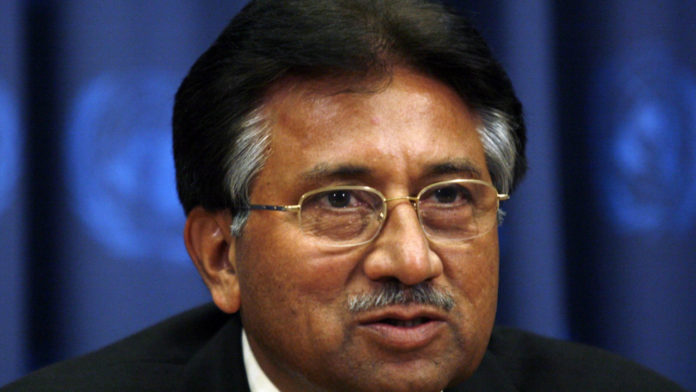Pervez Musharraf, the former military dictator of Pakistan and the man who facilitated the U.S. invasion of Afghanistan, has died aged 79 in Dubai.
Musharraff was suffering from amyloidosis – a condition that leads to an abnormal build-up of the amyloid protein in major organs. He had been living in the UAE since he was charged with treason in Pakistan in 2014.
The secular, whisky-drinking general ruled the country for nearly nine years after seizing power in a military coup in 1999 when he deposed and arrested Prime Minister Nawaz Sharif and made himself Chief Executive.
After the 9/11 attacks, Pakistan under Musharraf chose to ally with the U.S. and supported the overthrowing of Al Qaeda and the Afghan Taliban (the latter which the Pakistanis helped to create).
This included opening land routes for NATO forces to enter landlocked Afghanistan, allowing the presence of U.S. air bases, and sending Pakistani troops to tribal areas in the north to fight Al Qaeda and its affiliates.
This period also saw a rise in enforced disappearances in Pakistan, most notably in Balochistan and in Khyber Pakhtunkhwa. Hundreds of political activists, students and suspected armed fighters were forcibly disappeared.
In his autobiography, Musharraf also admitted arresting suspected Al Qaeda members and handing them over to the U.S., some of whom ended up in Guantanamo Bay, while earning “bounty payments totalling millions of dollars.”
Subscribe to our newsletter and stay updated on the latest news and updates from around the Muslim world!
Born in Delhi in 1943, Musharraf moved to Karachi, Pakistan, in 1947 with his family after partition.
He joined the army in 1961 as a student and steadily rose up the ranks, culminating in his selection as Army Chief in 1998.
In March 2007, Musharraf fired former Pakistan Chief Justice Iftikhar Muhammad Chaudhry, which led to a massive public backlash and gave birth to the lawyers’ movement.
Four months later, the week-long siege of The Red Mosque ended with Musharraf ordering a military operation in which some 100 people were killed. The incident was a catalyst for the rise of Pakistani Taliban.
In November 2007, he imposed a state of emergency and suspended the constitution, reigniting protests.
The assassination of former PM Benazir Bhutto in December led to more widespread protests and violence. He was accused of failing to ensure her security.
And in February 2008, his PML-Q party performed poorly in the polls, forcing him to resign from his office several months later.
After stepping down, Musharraf lived between London and Dubai for several years. In 2010, he announced the formation of his own party, the All Pakistan Muslim League, and returned to Pakistan in 2013 to lead his group in the general elections that year. But his party only won one seat in parliament.
Months later, new PM Nawaz Sharif started criminal proceedings against Musharraf, levelling treason charges against him for imposing emergency rule in 2007.
In 2019, a special court sentenced him to death in absentia, a conviction which was later overturned.
Musharraf is survived by his wife and two children.























